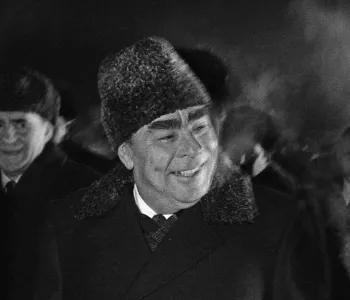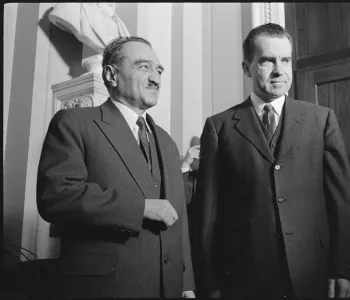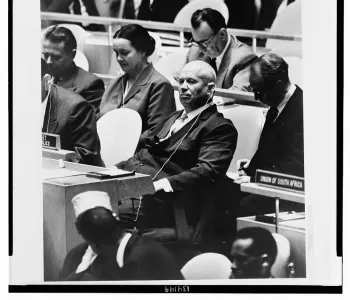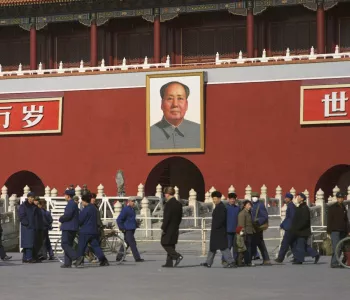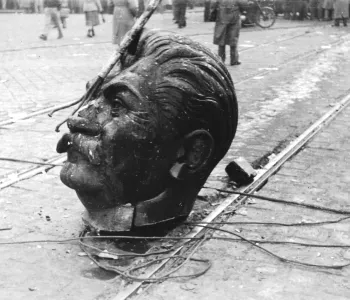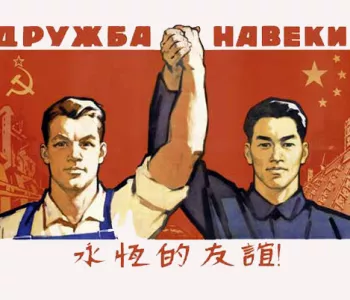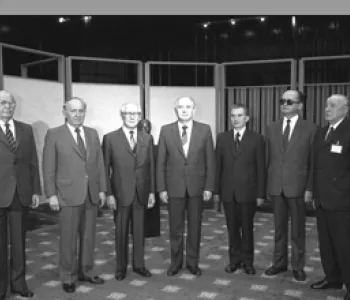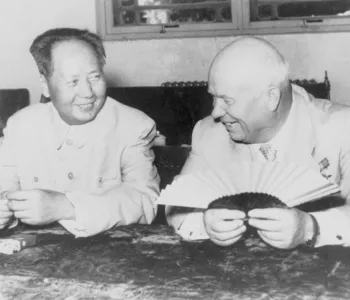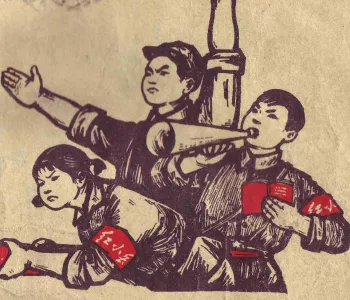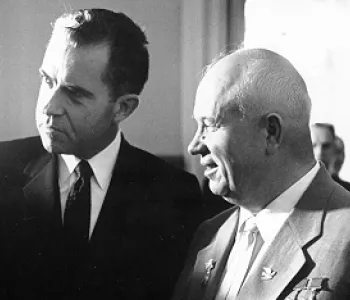d'Vinci

Kádár, János 1912- 1989
János Kádár was the General Secretary of the Communist Hungarian Socialist Workers' Party from 1956 to 1988, and twice served as prime minister of Hungary, from 1956 to 1958 and from 1961 to 1965.

Born in Fiume, in what was then the Austro-Hungarian Empire, Kádár joined the illegal Hungarian Communist Party in 1931, and was subsequently arrested several times for unlawful political activities.
During the Second World War, Kádár fought with the Czechoslovakian resistance.
In 1946 he was elected deputy secretary-general of the Hungarian Communist Party, and in 1949 became minister of the interior and head of the Budapest secret police.
Appointed as a party leader in a heavily industrialized district of Budapest, Kádár rose to prominence quickly, building up a large following amongst workers who demanded increased freedom for trade unions, and became the deputy premier in the newly created government headed by Imre Nagy.
Nagy began a process of liberalization, removing state controls over the press, releasing many political prisoners, and expressing wishes to withdraw Hungary from the Warsaw Pact. Kádár was strongly opposed to these policies and began to bitterly dislike Nagy.
Kádár was a central figure in the important events after the 1956 Hungarian Revolution which saw Nagy's downfall.
Following the Soviet invasion of Hungary and Nagy's ouster, János Kádár became leader of the country. Nagy, along with Georg Lukács, Géza Losonczy and László Rajk's widow, Julia, fled to the Yugoslavian embassy. Kádár promised them safe passage out of the country, but failed to keep this promise and had them kidnapped after they left the embassy on November 23, 1956.
On June 17, 1958, Kádár's government announced that several of the Nagy's reformers had been convicted of treason and attempting to overthrow the "democratic state order", and that Imre Nagy, Pál Maléter and Miklós Gimes had been executed for these crimes.
During Kádár's rule, tourism increased dramatically, with many tourists from Canada, the USA, and Western Europe bringing much needed money into Hungary.
János Kádár held power in Hungary until 1988 when Communism began to collapse and his own ill-health intervened. He was generally known as one of the more moderate East European communist leaders, although he supported the Warsaw Pact suppression of the Prague Spring in 1968. The Hungarian secret police also kept many Hungarians living in a state of fear, and arrested more than 10,000 people.
